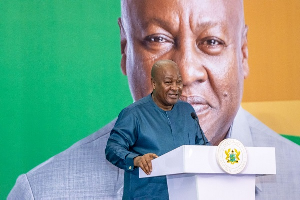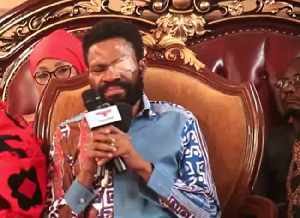The Executive Secretary of the Energy Commission of Ghana, Kofi Asante, has taken issue with the Director-General of the International Atomic Energy Agency (IAEA), Dr Mohammed El Baradei, describing his promise to carry out an energy assessment map of Ghana as ?a pie in the sky that appears to me to be in the nature of politicking in the international arena,? especially coming at a time he is preparing to seek re-election for another term of office, and his being aware of Ghana?s membership of the IAEA.
?If Dr El Baradei has had a ten-minute discussion with the Energy Commission, he would have probably spared Ghanaians his promise,? states Kofi Asante, who finds it difficult to fathom how the IAEA Director-General could make such a promise at a time the Energy Commission of Ghana had already done an assessment of the nation?s energy needs for the period 2000 to 2025.
In a letter reacting to Dr El Baradei?s promise, circulated to the media, Mr Asante states: ?If by energy assessment, Dr El Baradei means an educated estimate of the size, nature and quality of Ghana?s energy need, I must place on record that the Energy Commission of Ghana, the statutory body with the corporate responsibility for advising the Minister of Energy, i.e. the Government of Ghana, on energy matters, has on its own done an assessment of Ghana?s energy for the period 2000 to 2025. The Energy Commission?s Draft Strategic National Energy Plan, 2000 to 2025, deals with all aspects of the country?s energy need, including the investment required to meet the demand expected.?
The Draft Strategic National Energy Plan, which Mr Asante says is due for submission to the incoming Energy Minister, Prof Mike Oquaye, has seven sections: current demand and supply, generation transmission, distribution, demand projections, generation system expansion, investment (costs) and challenges.
The plan also outlines measures to ensure the least-cost supply of electricity; to increase grid electricity to most parts of the country and to minimise the negative environmental impacts in the electricity supply chain, among others.
Mr Asante, who finds it difficult to comprehend what Dr El Baredei meant by energy assessment map of Ghana, continues in his letter: ?If he means the solar and wind energy assessment (SWERA), I must again place it on record that the Energy Commission has been engaged in a SWERA Ghana project with funding provided by the United Nations Environmental Programme (UNEP), Nairobi-Kenya.?
Alluding to a ?practical support? UNEP has extended to the Energy Commission of Ghana ?without any declaration from the roof tops? Asante states further, ?On the basis of the indication of strong wind potential in and around the Ghana ?Togo border, UNEP has designated more funding for the installation of wind anemometers (devices to measure the force of the wind) in the area. The devices will be used to validate the SWERA Map of Ghana that the Energy Commission has produced, and confirms that there is indeed wind resource worthy of exploitation at that location.?
General News of Wednesday, 26 January 2005
Source: THE STATESMAN












